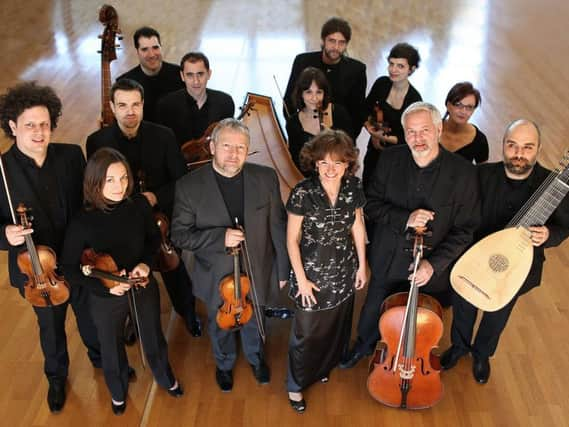Music review: Europa Galante, Queen's Hall, Edinburgh


Europa Galante, Queen's Hall * * * *
Sweeping melodic lines and dramatic harmonic twists played with lightness and wit are some of the hallmarks of Mozart’s music, but they could equally apply to his contemporary, Milanese composer Carlo Monza (c1735-1801). Europa Galante’s juxtaposition of the little-known Italian’s string quartets with those written by Mozart in Milan – K80, K156 and K157 – revealed stylistic similarities that are startling. And apparently the two men did meet.
The quartet’s leader, Fabio Biondi, has championed Monza’s work which is now enjoying modern-day premieres after languishing in a private archive.
Advertisement
Hide AdMonza treats his quartets as program music, giving them narratives that present almost like mini-operas. Vulcan the Roman god of fire hammers away at his forge in the F major, the viola is the gambler who loses everything in a flurry of trills in the B flat major while the skirmish between rival lovers in the C major results in a fatal dual.
The D major is called ‘Opera in Musica’, with the viola again the protagonist in this ill-fated love affair.
Playing on period instruments, the quartet’s engaging tonal warmth along with their crisp delivery gave an enticing glimpse into music of the 1770s when Milan was under Austrian rule.
Susan Nickalls